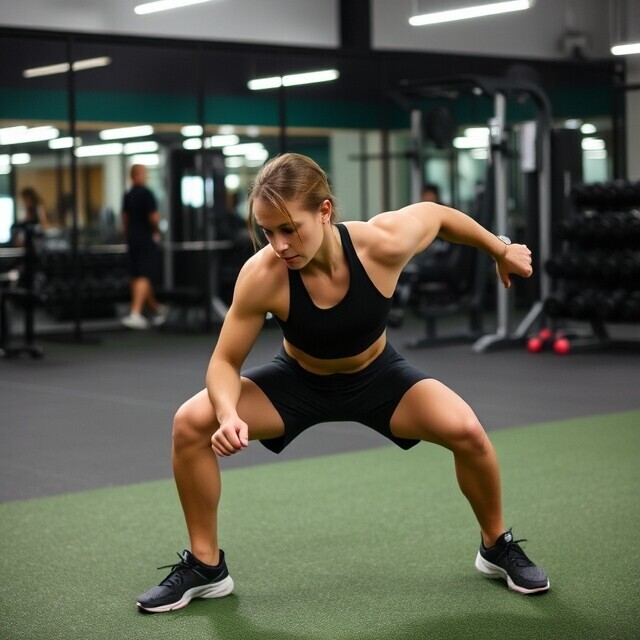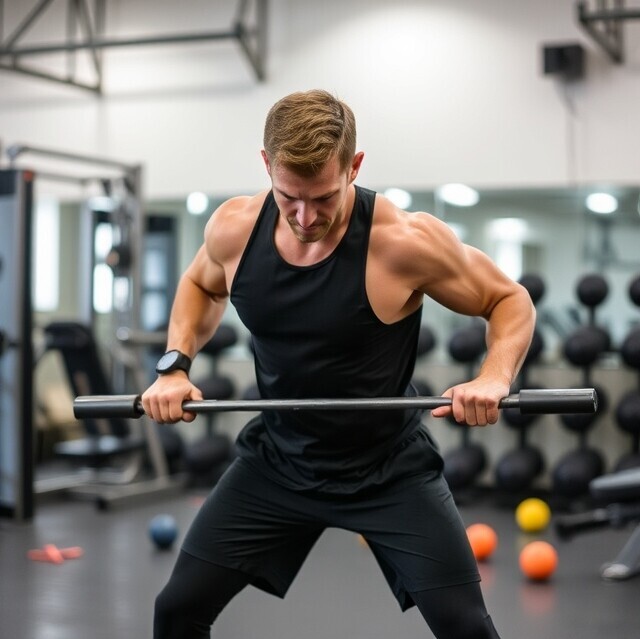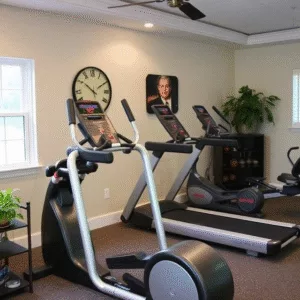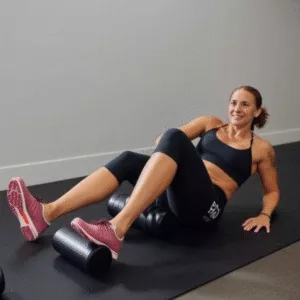
If, your goal is to perform at a high standard, then sports fitness training is the way forward. Your performance is dependant on a number of factors, which are nutrition, rest and hydration.
How you incorporate your sports fitness training routine will make all the difference to your performance outcome. This post will be focused on sports training and the various elements that are important and necessary to great performance.
Sports Fitness Training
Sports fitness training isn’t just about hitting the gym or running countless miles. It’s a science that combines physiology, biomechanics, and strategy to optimize athletic performance. Understanding how your body works can give you that extra edge, much like a mechanic fine-tuning a high-performance engine. When you know what makes your body tick, you can train smarter, recover better, and perform at your peak.

The Core Components of Sports Fitness Training
A balanced fitness program is like a well-oiled machine, with each component playing a crucial role. Let’s dive deeper into the pillars of sports fitness:
Strength Training: Building Power
Strength is the foundation of many sports. It’s not just about lifting heavier weights but also about functional strength that translates to better performance in your chosen activity. Compound movements like squats, deadlifts, and push-ups enhance not only your power but also your stability and coordination. Tailoring your strength training to mimic the movements of your sport can lead to significant performance gains.
Endurance Training: Sustaining Performance
Endurance helps you go the distance, whether you’re running a marathon, cycling, or competing in a multi-hour tournament. Cardiovascular activities like running, swimming, or cycling improve heart and lung capacity. Incorporating interval training, alternating between high-intensity bursts and rest can build endurance more efficiently.
Flexibility: Preventing Injuries
Flexibility is often overlooked but is essential for maintaining a full range of motion and preventing injuries. Dynamic stretching before training and static stretching afterward can keep your muscles limber. Sports like yoga and Pilates are excellent for improving flexibility while also enhancing core strength.
Agility: Staying Nimble
Agility is your ability to change direction quickly and effectively. Drills like ladder exercises, cone drills, and plyometric movements improve coordination, speed, and reaction time. Agility training is particularly beneficial for sports like soccer, basketball, and tennis, where quick changes in direction are critical.
The Importance of Personalization
One size definitely doesn’t fit all when it comes to sports fitness training. Your program should be as unique as you are. Factors like age, gender, body type, and specific goals influence how you should train.
Are you looking to build muscle, improve endurance, or recover from an injury? A tailored approach ensures that your efforts align with your objectives, much like a bespoke suit tailored to fit perfectly.
Functional Training: A Sport-Specific Approach
Functional training involves exercises that replicate the movements of your sport. For example, a swimmer might focus on shoulder mobility and core strength, while a sprinter emphasizes explosive power and stride mechanics. This sport-specific focus enhances your ability to perform on the field or court.
The Role of Technology in Sports Fitness Training
Technology has revolutionized sports fitness training. Wearable devices like smartwatches and heart rate monitors provide real-time data on your performance, while fitness apps offer personalized training plans and progress tracking.
Data-Driven Insights
Tracking metrics like heart rate, VO2 max, and recovery times allows you to fine-tune your routine. For instance, if your data shows a decline in performance, it might signal overtraining or the need for more recovery. Embracing technology can turn abstract goals into measurable progress, keeping you motivated and focused.
Sports Fitness Training – Importance of Sports Recovery
Recovery helps restore the body and mind to pre-exercise states after intense physical activity. It aids in repairing tissue damage, replenishing energy stores, reducing fatigue, and restoring hormonal balance. Proper recovery supports mental recuperation, enhances skill development, and fosters long-term health and well-being.
Key Recovery Techniques
1. Hydration
Staying hydrated is essential. During exercise, you lose fluids through sweat, and replenishing these fluids helps maintain optimal bodily functions.
2. Nutrition
Refuelling with nutrient-rich foods post-exercise helps repair muscle tissue and replenish glycogen stores. A balanced diet with adequate protein, carbohydrates, and healthy fats is vital.
3. Rest and Sleep
Quality sleep is indispensable for recovery. Aim for at least 7-9 hours of restorative sleep each night to support tissue repair and cognitive restoration.
4. Active Recovery
Engaging in low-intensity activities, such as walking or light stretching, can help improve blood flow and reduce muscle stiffness.
5. Massage and Stretching
Regular massages and stretching can alleviate muscle soreness, improve circulation, and promote relaxation.
6. Compression Garments
Wearing compression garments can enhance blood flow, reduce swelling, and support muscle recovery.
7. Hydrotherapy
Alternating between hot and cold water immersion can help reduce muscle inflammation and promote recovery.
8. Supplements
Certain supplements, like protein powders and branched-chain amino acids (BCAAs), can support muscle repair and recovery.
Sports Fitness Training – Additional Tips
- Listen to Your Body: Pay attention to signs of overtraining and fatigue.
- Consult Professionals: Seek advice from healthcare professionals or sports nutritionists for personalized recovery plans.
- Stay Consistent: Incorporate recovery techniques into your regular training routine for the best results.
Recovery: Healing and Growing
Recovery isn’t just about resting; it’s an active process. Techniques like foam rolling, massage, and active recovery workouts can help reduce muscle soreness and improve circulation. Getting adequate sleep is also vital, as it’s during sleep that your body repairs and builds muscle.
Nutrition: Fuelling Performance
Nutrition is the foundation of any fitness program. Carbohydrates fuel your workouts, proteins repair your muscles, and healthy fats support overall health. Hydration is equally important; even mild dehydration can impair performance. A well-balanced diet tailored to your training needs ensures your body has the resources it requires.
Building Mental Resilience: The X-Factor
When it comes to sports fitness training, physical preparation is only half the battle. Mental toughness is the fuel that drives performance, especially in high-pressure situations.
Visualization and Goal Setting
Visualization and goal setting are powerful tools for building mental resilience. Picture yourself crossing the finish line, nailing that serve, or scoring the winning goal. Setting specific, achievable goals provides a roadmap for success, while visualization boosts confidence and focus.
Managing Stress
Stress is an inevitable part of training and competition. Learning to manage it effectively can make the difference between excelling and faltering. Techniques like deep breathing, mindfulness, and even taking strategic rest days can help you stay centred and focused.

Sports Fitness Training – The Power of Mindfulness
Mindfulness practices like meditation or even a few moments of quiet reflection can sharpen focus, reduce anxiety, and enhance recovery. A holistic approach that integrates mental wellness with physical training ensures that both mind and body are prepared to tackle challenges head-on.
My Conclusion On Sports Fitness Training
Sports fitness training is a comprehensive and dynamic process that goes beyond just physical exertion. It’s a carefully balanced blend of strength, endurance, flexibility, and agility, supported by personalized strategies, cutting-edge technology, and robust recovery practices.
Most importantly, it incorporates mental resilience to ensure you’re not only physically fit but also mentally prepared to excel. Train hard, recover smart, and embrace the science behind the art of sports fitness training to unlock your full potential.
There’s a saying I believe in and that is, “To be a champion you must train like a champion”. The guidance you need is here but you must add positive action! I’m here for any questions or comments you might have.
Ultimate Training Gear.




